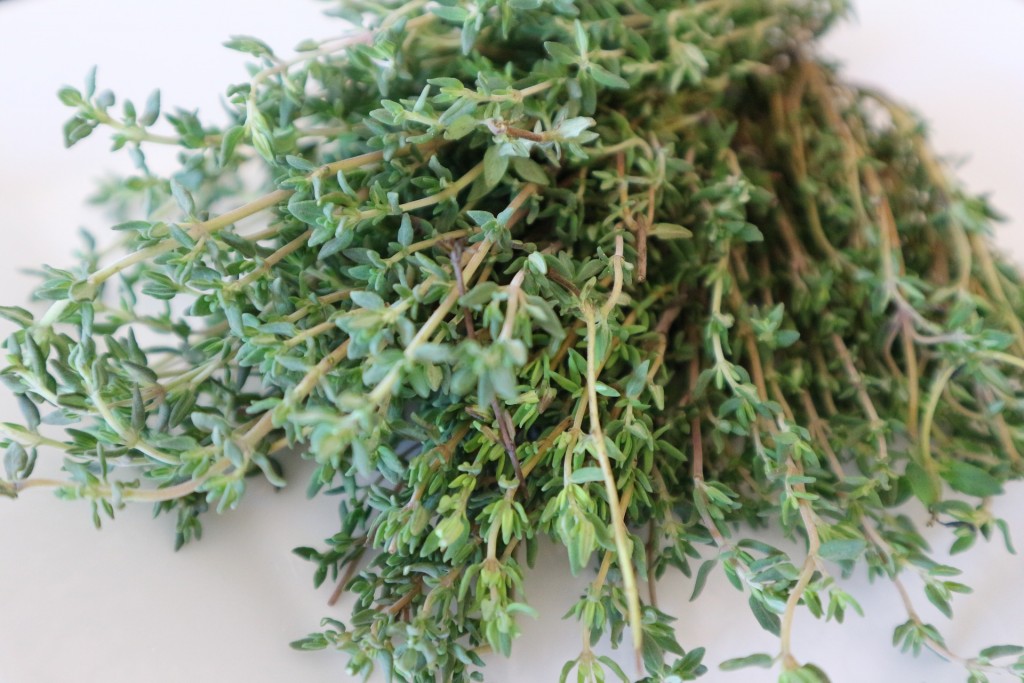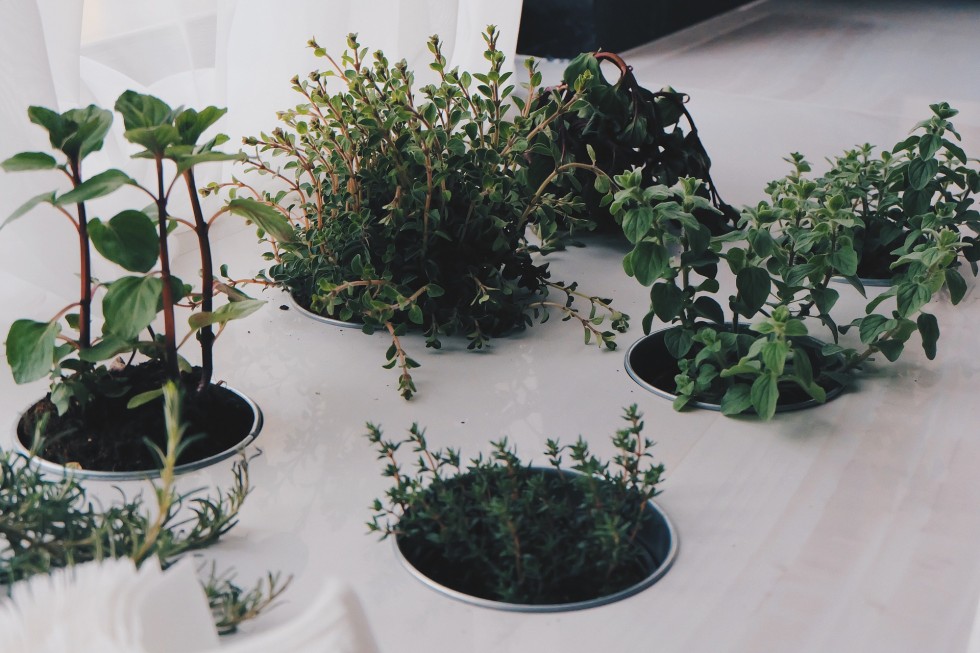When the frost covers your garden, you might instantly feel the need to eat a freshly grown tomato or have a bite from a crispy cucumber. Unfortunately, once the winter steps on the porch, the possibility of eating fresh vegetables and herbs may become an issue. Yet, if you have some space at home, it’s very easy to organize an in-home garden to grow your own herbs for winter salads and new recipes. Below you will find a compilation of 5 easy herbs to grow at home.
Basil
Basil is the first on this list of easy herbs to grow at home because people tend to use it most. Basil is easy to grow, it doesn’t require much care and will add unique flavor to anything you cook. You should definitely care for this fresh herb in the kitchen, if you love Italian cuisine and pesto in particular.
To grow basil at home you need to sow the seeds into wet soil and put the pot on sunny window sill. Most gardeners advise doing so in early spring. However, if you decided to organize a garden right now, all you need is to take a spring of basil, put it into water until it roots, and then put it into the soil. Make sure that the plant receives enough sunlight and water. If your home’s temperature is over 68-70 F, then water your home basil once in three-four days. Remember that basic hates replanting!
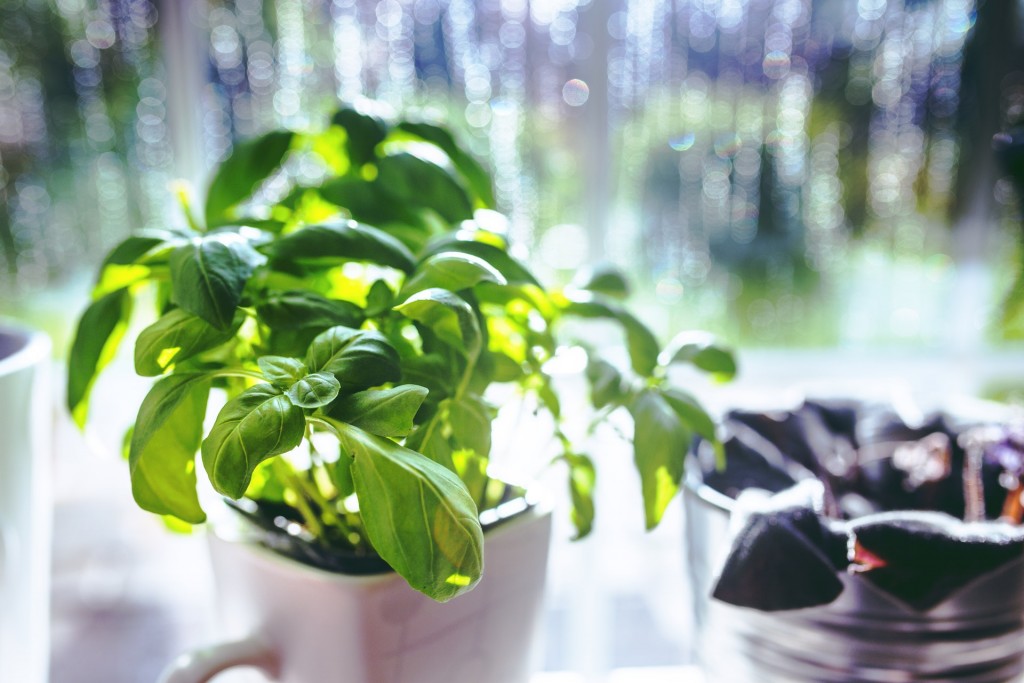
Dill and Parsley
A lot of people supplement fresh dill and parsley with the dried herbs from the store for winter season, but why doing so if you can grow your own plant at home? Both of these herbs are frequently used for fresh salads, as small decorative elements for most soups and meat dishes. They also add special taste to any liquid dish, and will undoubtedly taste great in a vegetable bowl for any occasion.
With no doubt, it is better to plan both dill and parsley in spring and wait until the herbs get stronger so you can use them during the winter period. Yet if you have decided to do it just now, then don’t despair! You can either buy a bush of each herb in an organic store or just grow them from the roots (they are available at pretty much any market and store). Both dill and parsley are easy herbs to grow at home, but they can be a little bit “capricious” during the winter. To ensure that your herbs receive enough ultraviolet, put them on the sunniest window sill you have and add some additional UV-lamp for the evening time to enhance their growth.
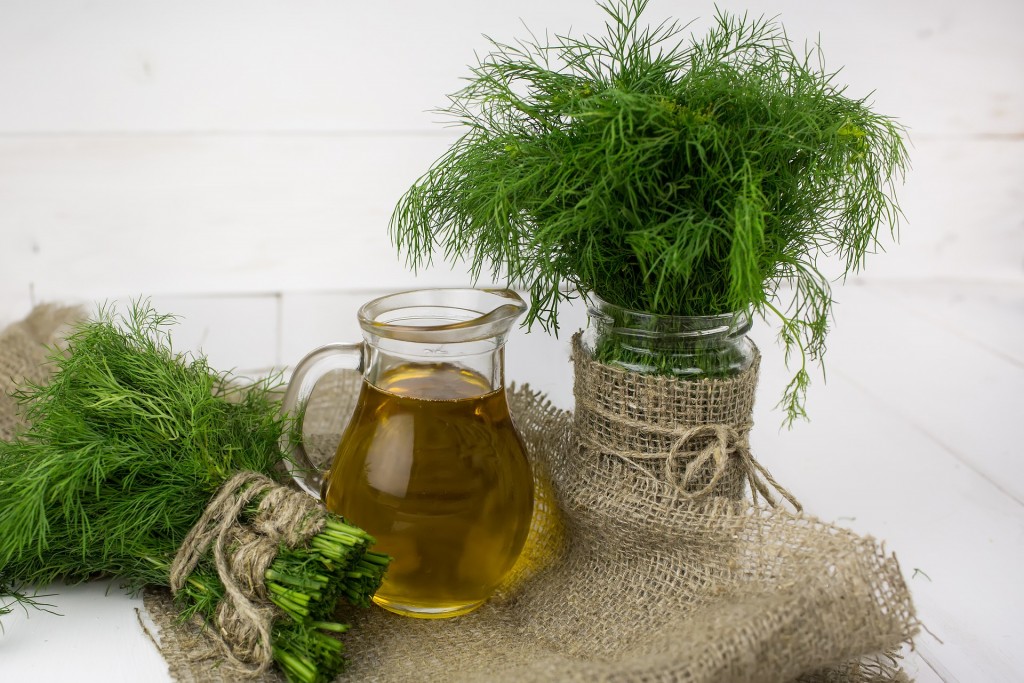
Coriander
Coriander is a kind of universal herb so frequently used in the art of cuisine by many nations. The Italians, French, Greek, or Russians – all these people adore coriander. This herb can be perfectly added to meat dishes and especially pork ones, you can add it to ham in order to enhance its taste in a sandwich. Coriander roots are frequently used to add flavor to different soups as well.
To grow coriander from a spring, you need to cut it from a fresh bush and put into water in a warm place for 10-12 days. After this time, you will see small roots coming from the stems. Due to the poor rooting system of coriander, you can put 3-5 stems into each pot and they won’t come into conflict with each other. Professional gardeners also warn that Coriander doesn’t like metal or plastic pots, so ensure that you get only a clay pot for your home garden.
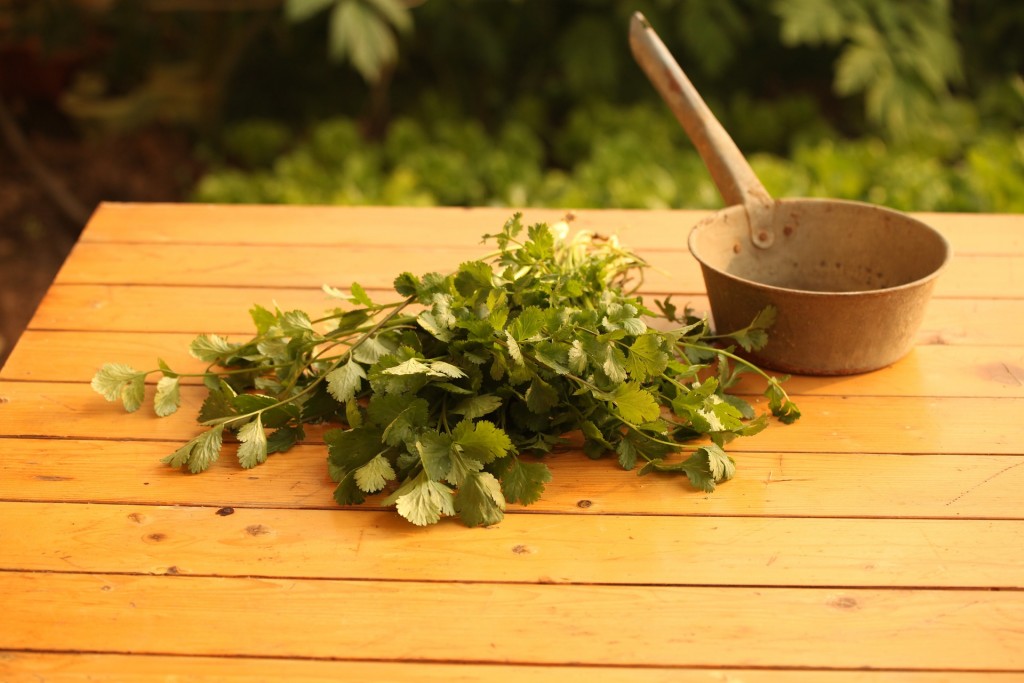
Thyme
Thyme is one more common herb for all kinds of dishes. Chopped leaves are used in recipes for lamb, beef, veal, and pork as well as perform decorative function for dishes made of these kinds of meat. It also comes together with all kinds of cheese and eggs and can be eaten even on its own. Soups and stews cooked with thyme gain unforgettable flavor and smell.
Thyme is one of those easy herbs to grow at home. To grow it on the window sill right now you simply need to follow the same pattern as described above for dill and parsley. But in the beginning this plant can be pretty sensitive to direct sunlight, so it’s better to hide your young thyme from the sun. Yet, make sure that it receives enough light for growth. Don’t also put it on the balcony because during the first couple of months thyme requires only warm air for proper development. If you have already had thyme in your winter garden, then keep in mind that you can replant it only after the first year.
